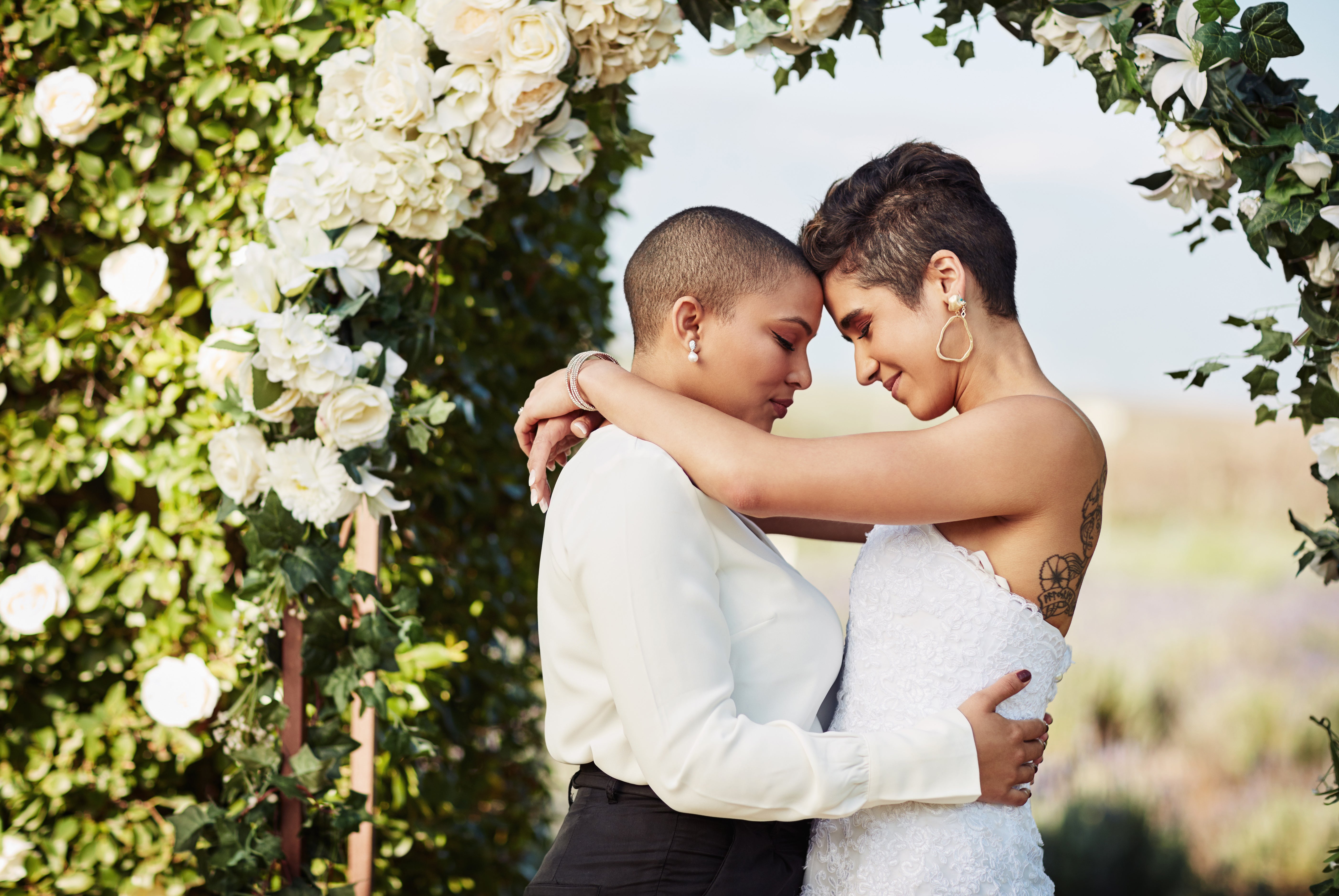The Independent's journalism is supported by our readers. When you purchase through links on our site, we may earn commission.
No-fault divorce isn’t new – it was pioneered by lesbians
It’s a healthy thing to move beyond the binary narratives that we often seem to construct around an ending – human relationships are much more complex than that


Your support helps us to tell the story
From reproductive rights to climate change to Big Tech, The Independent is on the ground when the story is developing. Whether it's investigating the financials of Elon Musk's pro-Trump PAC or producing our latest documentary, 'The A Word', which shines a light on the American women fighting for reproductive rights, we know how important it is to parse out the facts from the messaging.
At such a critical moment in US history, we need reporters on the ground. Your donation allows us to keep sending journalists to speak to both sides of the story.
The Independent is trusted by Americans across the entire political spectrum. And unlike many other quality news outlets, we choose not to lock Americans out of our reporting and analysis with paywalls. We believe quality journalism should be available to everyone, paid for by those who can afford it.
Your support makes all the difference.No-fault divorce isn’t new – it was pioneered by lesbians many decades ago. Sigh. If only I had invented a sort of “straight appropriation bingo” when, several years ago, I first noticed the heteronormative community nicking all the useful, ingenious and creative ideas around rethinking commitment that LGBT+ people have embraced all along.
Ethical non-monogamy. Tick. Friends as family. Tick. Living apart together. Tick.
When you have been legally excluded from traditional structures like marriage and parenting, you do start to wonder whether nuclear families are all they’re cracked up to be anyway. Poet Dominic Berry once said to me: “If you are doing something so widely viewed as deviant anyway, making another deviance from the norm isn’t too big a jump.”
The typical lesbian solution to the conundrum of long-term commitment is a cycle of serial monogamy so rapid that it would surely make even the most rampant straight man feel tired. Our civil partnership dissolution, and now divorce, rates are several times higher than the rates of gay male separations.
As a result, we all bump into multiple ex-partners as a daily occurrence. And this means that you have to stay friends. In a small community, you most likely share all your friends with that person anyway. You simply have to separate without attributing blame. So, in the face of discrimination and exclusion, gay women have had to pioneer a sort of “no-fault” system of separation. As historian Jane Traies says, “it’s not uncommon for a lesbian’s ex-partner to be her best friend”.
It’s such a healthy thing to move beyond the binary narratives that we often seem to construct around an ending – the “good” person who we should all rally around and the “bad” one who had an affair or decided to voice their unhappiness and leave. Human relationships are much more complex than that. And it can be an aid to our own personal growth and healing if we can recognise our own part in the breakdown of a once-beautiful romance, even if we initially feel like we are the aggrieved party.
In contrast, my friend and wonderful comedian and podcaster Helen Thorn believes it was important to be able to cite a “reason” for her divorce. She says: “I found it incredibly important that I filed under adultery. Because that is why the marriage ended. When you’re really fragile, it’s validating when the reason is there in black and white.”
I love Helen and her work, but I disagree. When I conducted a survey asking “what counts as cheating?”, as research for one of my comedy shows, I found that there is almost nothing black and white about monogamy and infidelity. There are a zillion ambiguous assumptions and shades of grey (yes, way more than 50).
To keep up to speed with all the latest opinions and comment, sign up to our free weekly Voices Dispatches newsletter by clicking here
There is no one-size-fits-all approach to monogamy and almost no discussion or agreement between partners about what their own personal boundaries are. So how can infidelity be cited as a reason for divorce when nobody agrees what it is in the first place? There is even a weird loophole in the law whereby a same-sex affair doesn’t count as “adultery” anyway. This is all as archaic and ridiculous as Queen Victoria’s insistence that lesbians didn’t exist.
Meanwhile, many relationships fizzle out amicably, like a seasonal flower that bloomed and then withered away organically. For these couples, there is no simple “reason”. When the poet Kate Fox appeared on my podcast in the midst of the divorce process, she sighed wistfully: “It turns out that ‘I have discovered myself through swimming’ and ‘we got a dog and couldn’t have sex any more’ are apparently not legitimate reasons that you can put down.”
I’m due to get married for the first time this June. I hope we don’t divorce. But if we were ever to separate, I think my reasons would be broader. Human beings live too long these days. Our animalistic brains aren’t wired for long-term romantic happiness. Society’s interpretation of monogamy has moved from “one marriage for life” to “one marriage at a time”. So we will all most likely go through lots of big breakups. We have to do our best to navigate this messy minefield as compassionately as we can. And forgiveness is a huge part of that.
I am cheering loudly for the arrival of no-fault divorce, whilst waving a rainbow flag in recognition and celebration of where I believe that this pragmatic and respectful style of separation originated.
Rosie Wilby is a comedian and the author of ‘The Breakup Monologues’ published by Bloomsbury
Join our commenting forum
Join thought-provoking conversations, follow other Independent readers and see their replies
Comments